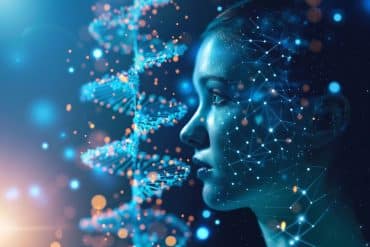Summary: According to a new mouse study, antibotics that are strong enough to kill gut bacteria can also halt the growth of hippocampal neurons.
Source: Cell Press.
Antibiotics strong enough to kill off gut bacteria can also stop the growth of new brain cells in the hippocampus, a section of the brain associated with memory, reports a study in mice published May 19 in Cell Reports. Researchers also uncovered a clue to why– a type of white blood cell seems to act as a communicator between the brain, the immune system, and the gut.
“We found prolonged antibiotic treatment might impact brain function,” says senior author Susanne Asu Wolf of the Max-Delbrueck-Center for Molecular Medicine in Berlin, Germany. “But probiotics and exercise can balance brain plasticity and should be considered as a real treatment option.”
Wolf first saw clues that the immune system could influence the health and growth of brain cells through research into T cells nearly 10 years ago. But there were few studies that found a link from the brain to the immune system and back to the gut.
In the new study, the researchers gave a group of mice enough antibiotics for them to become nearly free of intestinal microbes. Compared to untreated mice, the mice who lost their healthy gut bacteria performed worse in memory tests and showed a loss of neurogenesis (new brain cells) in a section of their hippocampus that typically produces new brain cells throughout an individual’s lifetime. At the same time that the mice experienced memory and neurogenesis loss, the research team detected a lower level of white blood cells (specifically monocytes) marked with Ly6Chi in the brain, blood, and bone marrow. So researchers tested whether it was indeed the Ly6Chi monocytes behind the changes in neurogenesis and memory.
In another experiment, the research team compared untreated mice to mice that had healthy gut bacteria levels but low levels of Ly6Chi either due to genetics or due to treatment with antibodies that target Ly6Chi cells. In both cases, mice with low Ly6Chi levels showed the same memory and neurogenesis deficits as mice in the other experiment who had lost gut bacteria. Furthermore, if the researchers replaced the Ly6Chi levels in mice treated with antibiotics, then memory and neurogenesis improved.
“For us it was impressive to find these Ly6Chi cells that travel from the periphery to the brain, and if there’s something wrong in the microbiome, Ly6Chi acts as a communicating cell,” says Wolf.
Luckily, the adverse side effects of the antibiotics could be reversed. Mice who received probiotics or who exercised on a wheel after receiving antibiotics regained memory and neurogenesis. “The magnitude of the action of probiotics on Ly6Chi cells, neurogenesis, and cognition impressed me,” she says.
But one result in the experiment raised more questions about the gut’s bacteria and the link between Ly6Chi and the brain. While probiotics helped the mice regain memory, fecal transplants to restore a healthy gut bacteria did not have an effect.

“It was surprising that the normal fecal transplant recovered the broad gut bacteria, but did not recover neurogenesis,” says Wolf. “This might be a hint towards direct effects of antibiotics on neurogenesis without using the detour through the gut. To decipher this we might treat germ free mice without gut flora with antibiotics and see what is different.”
In the future, researchers also hope to see more clinical trials investigating whether probiotic treatments will improve symptoms in patients with neurodegenerative and psychiatric disorders.”We could measure the outcome in mood, psychiatric symptoms, microbiome composition and immune cell function before and after probiotic treatment,” says Wolf.
Funding: This project was funded by the German Research Council.
Source: Joseph Caputo – Cell Press
Image Source: This NeuroscienceNews.com image is credited to Möhle et al./Cell Reports 2016.
Original Research: Full open access research for “Ly6Chi Monocytes Provide a Link between Antibiotic-Induced Changes in Gut Microbiota and Adult Hippocampal Neurogenesis” by Luisa Möhle, Daniele Mattei, Markus M. Heimesaat, Stefan Bereswill, André Fischer, Marie Alutis, Timothy French, Dolores Hambardzumyan, Polly Matzinger, Ildiko R. Dunay, and Susanne A. Wolf in Cell Reports. Published online May 19 2016 doi:10.1016/j.celrep.2016.04.074
[cbtabs][cbtab title=”MLA”]Cell Press. “A Link Between Gut Bacteria and Neurogenesis: Mouse Study.” NeuroscienceNews. NeuroscienceNews, 19 May 2016.
<https://neurosciencenews.com/neurogenesis-gut-bacteria-4253/>.[/cbtab][cbtab title=”APA”]Cell Press. (2016, May 19). A Link Between Gut Bacteria and Neurogenesis: Mouse Study. NeuroscienceNews. Retrieved May 19, 2016 from https://neurosciencenews.com/neurogenesis-gut-bacteria-4253/[/cbtab][cbtab title=”Chicago”]Cell Press. “A Link Between Gut Bacteria and Neurogenesis: Mouse Study.” NeuroscienceNews.
https://neurosciencenews.com/neurogenesis-gut-bacteria-4253/ (accessed May 19, 2016).[/cbtab][/cbtabs]
Abstract
Ly6Chi Monocytes Provide a Link between Antibiotic-Induced Changes in Gut Microbiota and Adult Hippocampal Neurogenesis
Highlights
•Antibiotics decrease neurogenesis and cognitive function
•Probiotics or exercise rescues neurogenesis and cognitive function
•Ly6Chi monocytes are crucial for brain homeostasis
Summary
Antibiotics, though remarkably useful, can also cause certain adverse effects. We detected that treatment of adult mice with antibiotics decreases hippocampal neurogenesis and memory retention. Reconstitution with normal gut flora (SPF) did not completely reverse the deficits in neurogenesis unless the mice also had access to a running wheel or received probiotics. In parallel to an increase in neurogenesis and memory retention, both SPF-reconstituted mice that ran and mice supplemented with probiotics exhibited higher numbers of Ly6Chi monocytes in the brain than antibiotic-treated mice. Elimination of Ly6Chi monocytes by antibody depletion or the use of knockout mice resulted in decreased neurogenesis, whereas adoptive transfer of Ly6Chi monocytes rescued neurogenesis after antibiotic treatment. We propose that the rescue of neurogenesis and behavior deficits in antibiotic-treated mice by exercise and probiotics is partially mediated by Ly6Chi monocytes.
“Ly6Chi Monocytes Provide a Link between Antibiotic-Induced Changes in Gut Microbiota and Adult Hippocampal Neurogenesis” by Luisa Möhle, Daniele Mattei, Markus M. Heimesaat, Stefan Bereswill, André Fischer, Marie Alutis, Timothy French, Dolores Hambardzumyan, Polly Matzinger, Ildiko R. Dunay, and Susanne A. Wolf in Cell Reports. Published online May 19 2016 doi:10.1016/j.celrep.2016.04.074






